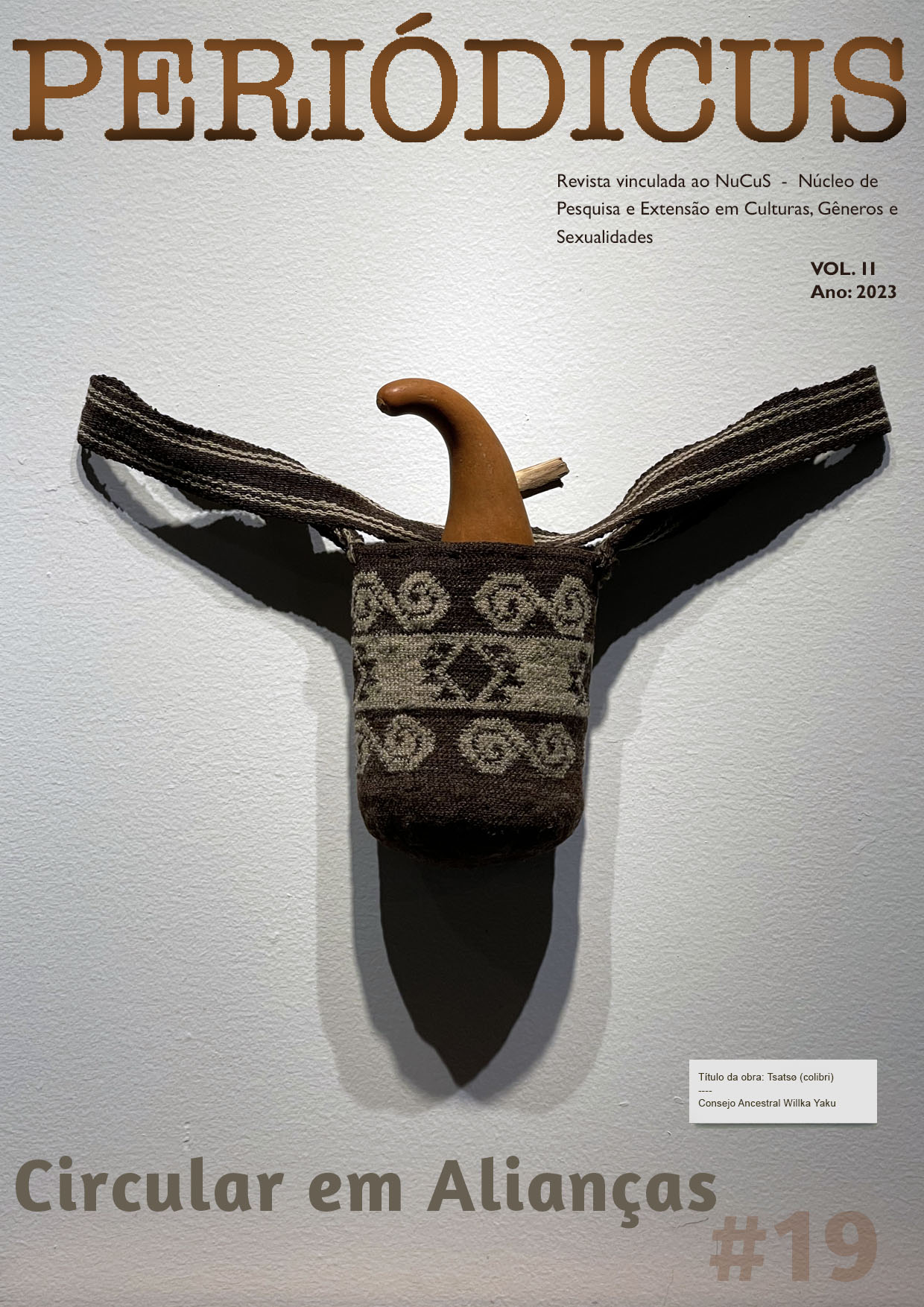Listening to the transgender child
a look at Brazilian scientific production and ethical issues
DOI:
https://doi.org/10.9771/peri.v2i19.50755Abstract
In this article we aim to carry out a mapping of Brazilian intellectual productions that listen to transgender children in their investigations in order to understand how this theme is being analyzed. The research also discusses the demands and dilemmas that involve child transgender identity and the ethical and methodological issues that permeate research with children in Brazil. The survey was carried out on internet search platforms that index and disseminate scientific studies, being analyzed through a post-structuralist perspective. We found that the works retrieved in the searches predominantly make theoretical reflections, based on bibliographic surveys and also on memories about the childhood of trans adults. In this sense, we consider that there is an urgent need for more studies with transgender children in the country, stressing how transgender identity in childhood is understood and what knowledge can potentially be produced by these subjects.
Downloads
Downloads
Published
How to Cite
Issue
Section
License
Copyright (c) 2023 Daniella Vieira Magnus, Cristiano Eduardo da Rosa, Jane Felipe

This work is licensed under a Creative Commons Attribution-NonCommercial 4.0 International License.
Autores que publicam nesta revista concordam com os seguintes termos:
Autores mantêm os direitos autorais e concedem à revista o direito de primeira publicação, com o trabalho simultaneamente licenciado sob Licença Creative Commons Attribution Noncommercial que permite o compartilhamento do trabalho com reconhecimento da autoria e publicação inicial nesta revista, sendo vedado o uso com fins comerciais.
Autores têm autorização para assumir contratos adicionais separadamente, para distribuição não-exclusiva da versão do trabalho publicada nesta revista (ex.: publicar em repositório institucional ou como capítulo de livro), com reconhecimento de autoria e publicação inicial nesta revista.
Autores têm permissão e são estimulados a publicar e distribuir seu trabalho online (ex.: em repositórios institucionais ou na sua página pessoal) a qualquer ponto antes ou durante o processo editorial, já que isso pode gerar alterações produtivas, bem como aumentar o impacto e a citação do trabalho publicado (Veja O Efeito do Acesso Livre).







